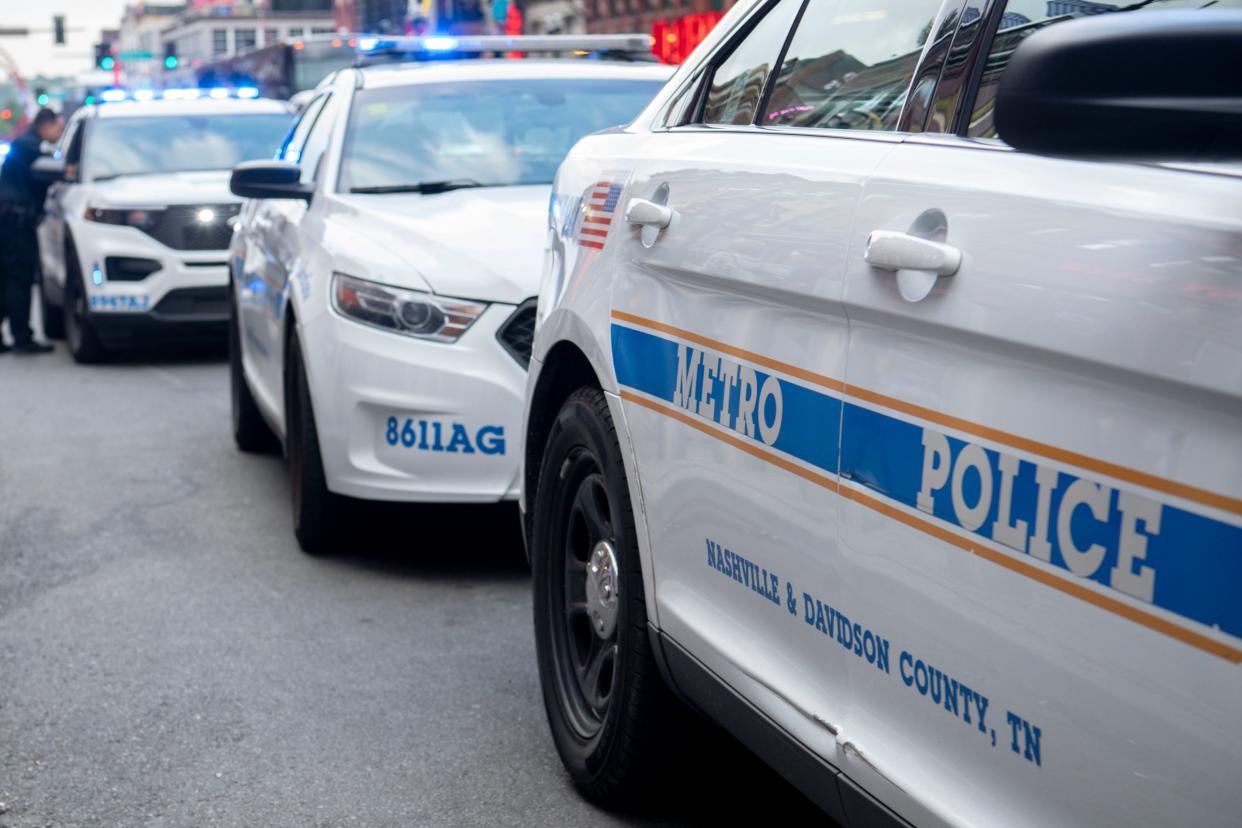Cashing in on tips: How Crime Stoppers works to help Nashville police solve the hard cases

When there's a push to solve a homicide or cold case, offering reward money can be an enticing way to encourage a flow of new information.
In the case of Rodrigo Aguilar, someone is willing to pay $40,000 to find the person responsible for his death.
Aguilar, 60, was fatally shot on Highway 70 South near Bellevue Road on May 27. Nashville police believe he likely witnessed suspects trying to break into cars near his home and confronted them before being shot.
A case very similar to another
The large donation in the Aguilar case is reminiscent of the Caitlyn Kaufman case from December 2020, when private donors ponied up a $65,000 reward for information leading to those responsible for the Nashville nurse's death. She was shot during her commute to work.
Aguilar's case has not drawn the same national attention as Kaufman's, but that's not stopping a donor from offering money.
It's common for the Metro Nashville Police Department to ask for the public's assistance when searching for suspects. When they do, there are times when a reward is offered by Crime Stoppers, a nonprofit organization that works with MNPD, offering up to $5,000 for information in certain cases leading to the arrest and conviction of a suspect or suspects.
In Aguilar's case, the $40,000 is not affiliated with Crime Stoppers, though they are offering a separate reward of up to $5,000 in the case. The $40,000, according to MNPD, would be paid to any successful tipster by the private donor.
Nashville Crime Stoppers Board Chair Gary Cordell said the nonprofit relies completely on donations, and they're always being accepted, but in most cases, he said the money is pooled into one fund and then used for payouts, not earmarked for certain cases.
At the time of Kaufman's murder, Cordell said Crime Stopper bylaws limited reward payouts to $1,000. That changed a little more than a year ago, when the organization increased potential payouts to $5,000.
"There are a lot of families out there and loved ones that have never gotten closure, not that you ever do," Cordell said, but with an increased reward payout, he and the board believe more people might be willing to come forward. Still, Cordell said even $5,000 might not be enough of an incentive to gain the necessary information to capture a suspect.
That's where the private donations come in.
Unless a donor wants a donation to go into a reserve fund that isn't earmarked for cases, they have to fill out a pledge form that does not operate through Crime Stoppers.
So how does a case get picked?
Metro Police spokesperson Brooke Reese said every case that comes before Crime Stoppers is different.
She said the department's liaison to Crime Stoppers will work with detectives to present cases to the Crime Stoppers board for reward approval.
"They usually prioritize cold cases and homicides," Reese said.
And there are plenty to choose from, with the department reporting 93 homicides through November. Almost 40 cases remained open without a suspect arrested as of press time for this story.
Not every case is flush with tips, meaning the reward money can inspire someone to come forward.
Crimestoppers and Metro Police are hoping that will be the case in the fatal shooting of Chris Spaunhorst. The 37-year-old Greenbrier man was killed last Christmas in Nashville. He'd left his family home after a Christmas gathering to drive his mother home, his wife said.
Crime Stoppers is offering $5,000 for information, and another $15,000 is being offered by private donors in the case.
But despite the $20,000 reward, Reese said information is sparse.
"There have been hardly any tips that have come in," Reese said. "Sometimes people see something if something was in a really dense area and heavily populated, like on the interstate. You would think a lot of people saw what happened on the interstate on Christmas Day last year, and there really haven't been any tips."
Spaunhorst was gunned down while driving westbound on Interstate 24.
First come, first serve?
When rewards are offered, it's not uncommon for a flood of tips to come in at first, Reese said.
Though it is not specifically tracked, the vast majority of these tips do not lead to results, though Metro Police detectives follow up on all the tips, Reese said, noting that no reward money has been paid out to date in 2023.
There is a bit of fine print when it comes to the tips. All of them need to result in the indictment and/or conviction of a suspect or suspects.
In Crime Stoppers' nearly 30 years of operations in Nashville, Cordell said every case has been different, but multiple tipsters can earn reward money if two or more people offer up the same tip and it leads to the arrest and conviction of a suspect or suspects responsible for a homicide.
Surprise tips lead to big reward
In the Kaufman case, it was a tip from Jacques Merrell-Odom that led police to identify Devaunte Hill as a suspect. Hill was eventually convicted by a jury and sentenced to 25 years in prison. Another suspect in the case, James Cowan, was acquitted.
Merrell-Odom and Hill were childhood friends, police said.
Reach reporter Craig Shoup by email at cshoup@gannett.com and on X @Craig_Shoup. To support his work, sign up for a digital subscription to www.tennessean.com.
This article originally appeared on Nashville Tennessean: Crime Stoppers: Explaining the program that rewards tips with money

